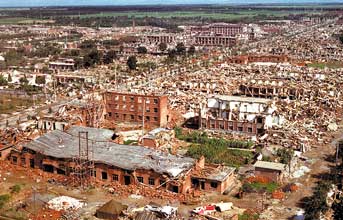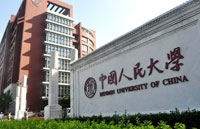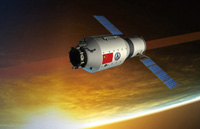Intl conference injects new vigor to metropolitis
By LI YU and Peng Chao (chinadaily.com.cn) Updated: 2016-07-27 13:42Experts believe the G20 Finance Ministers and Central Bank Governors Meeting that was held in Chengdu, a megacity in western China, last weekend will help to further invigorate the city’s development and accelerate its internationalization.
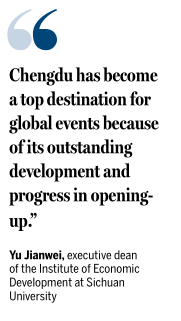
At the meeting in Chengdu, delegates discussed issues concerning the global economy, frameworks for strong, sustainable and balanced growth and investment and infrastructure, with the aim of finding anew driving force for the global economy.
“It’s no coincidence that Chengdu was chosen as the host city for the G20 meeting. The city has become a top destination for global events because of its outstanding economic development and progress in opening-up,” said Yu Jianwei, executive dean of the Institute of Economic Development at Sichuan University.
China’s “Go West” strategy has given it global appeal, while Chengdu continues to lead the development processing the west of the country, bringing the city sharply into global focus, Yu said.
Chengdu is an emerging star on China’s economic landscape. Its GDP was 1.08 trillion yuan ($161 billion) last year, an increase of 7.9 percent year on year. It also utilized $7.5 billion of overseas investment during the same period.
The Milken Institute, an independent American economic think tank, ranked the city top of its list of China’s best performing cities. The World Bank deemed Chengdu as a “benchmark city for the investment environment in inland China”.
“The city started to boost opening-up and internationalization ahead of many other cities, and it has greatly expanded global cooperation and exchanges in recent years,” Yu said.
The city is no longer simply palace of giant pandas, delicious food and beautiful landscapes. It is now also a thoroughly modern city with 89 international air routes, 271 Fortune Global 500 companies, 15 foreign consulates, and the largest number of international brands in western China.
By the end of last year, the city had direct economic and trade relations with 223 majorities worldwide, including 20that have opened trade and tourism offices in the city.
Many distinguished foreign guests have visited the city in recent years, including German Chancellor Angela Merkel, former British prime minister David Cameron and US first lady Michelle Obama.
During a state visit to China in 2013, then British prime minister David Cameron made Chengdu his last stop. Cameron said he was impressed by the city’s picturesque landscapes and rapid economic development. He stated that he could see the future of western China in Chengdu.
In July 2014, German Chancellor Angela Merkel chose Chengdu as the first stop on her seventh official trip to China. She visited the FAW-Volk-swage factory, took a class in Sichuan cookery and attended forum on urbanization.
“By playing host to international events and distinguished foreign guests, Chengdu has become increasingly well known and better connected to the world, and, as a result, it has become a new driving force for the region’s development,” Yu said.
New development wave
Yu noted that planning for the Chengdu-Chongqing city cluster, which was issued in May by the central government, requested that Chengdu build itself into a national hub city, and this is also a new drive for the city’s economic development and opening-up.
He believes that Chengdu is more competitive than many other cities in China because of its large talent pool, solid foundation in high-tech industries and the local government’s support for innovative development.
“The new round of development is no longer dependent on investment, but on technological innovation, talents and the business environment,” Unsaid, adding that an increasing number of both domestic and foreign talents have chosen to either work or start a business in Chengdu in recent years.
The city is home to 53 universities with 700,000 students, and 280,000 scholars graduate from its universities annually.
It also has 30 State level research institutes, 10 key national laboratories and some100 vocational and technical colleges.
To ensure that Chengdu becomes the logical choice for talented professionals looking to develop new ideas or start businesses, the city announced on Feb 14 that it had adopted10 new policies to achieve the goal, as well as the establishment of a fund of up to 2 billion yuan.
By the end of last year, Chengdu had recruited 34 academicians and 169 national level experts through China’s 1, 000 Talents Plan. Those figures lead the nation.
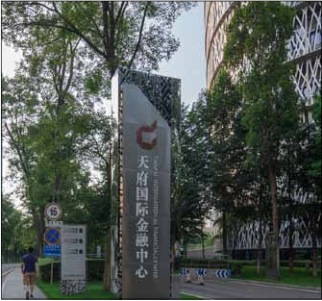 |
|
The Tianfu International Financial Center is a landmark building in Chengdu. |
- Heat wave poses serious health threat
- Unmanned metro to launch in 2017
- Party's promotional video goes viral online
- President tells the Army to improve
- US agrees it's time to 'turn the page'
- Guidelines encourage parents to provide better care
- Victims' families sign settlements
- China backs WHO in implementation of health-related goals: Xi
- China, US vow to boost trust
- Ex-military leader Guo given life in bribery case



